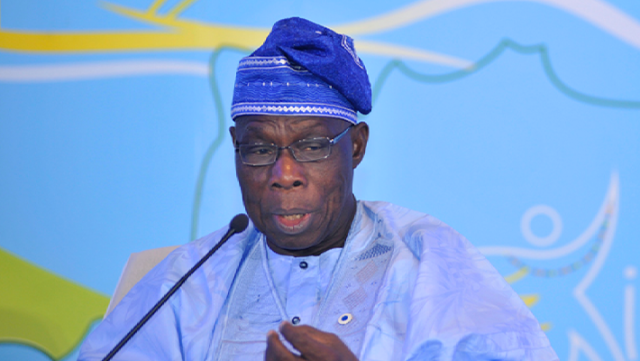ABUJA, Nigeria - Former Nigerian President Olusegun Obasanjo has urged a reassessment of governance models in Africa to realize an African Renaissance.
He made this statement while addressing the topic “African Renaissance in an Era of Turbulence: Are the Lions Still on the Move?” at the 32nd Afreximbank Annual Meetings (AAM2025) in Abuja on Thursday.
Obasanjo stressed that Africa's advancement hinges on the capacity of its leaders to collaborate and prioritize the continent's interests.
He pointed out that the existing Western liberal democracy, inherited from colonial rule, is not serving Africa’s best interests and requires scrutiny and adaptation to better fit African needs.
He proposed that Africa’s pre-colonial governance systems, which valued communalism and collective decision-making, could offer important insights for contemporary governance and help combat corruption.
“Our system does not distinguish between opposition and government. It should represent all working together. We had this before colonization,” he stated.
“Now is the time to acknowledge that both the government and opposition are failing us, and not fulfilling their roles.
Our system and democracy have become commercialized,” he added. In response to whether the 'lions'—a term representing Africa's most powerful and influential nations—are progressing, he indicated that while they are moving, the pace is not satisfactory.
He listed Nigeria, Egypt, Ethiopia, the Democratic Republic of the Congo (DRC), South Africa, Kenya, Senegal, and Morocco as countries with significant economic and demographic potential.
He opined that Nigeria, Ethiopia, the DRC, and South Africa are not achieving their expected economic and political growth.
According to him, these lions must accelerate their progress to foster development. When asked about what is required to mobilize them, he asserted that leaders must possess the necessary knowledge to handle the intricacies of the global economy. “How well do our leaders understand the world? What do we deserve as Africans?” he queried.
“With knowledge, we can formulate appropriate policies from the community to the national, sub-regional, and continental levels that address our current global situation.”
He underscored that Africa can indeed progress, referencing success stories like Ethiopia's advancements in wheat self-sufficiency, now exporting to neighboring nations. Furthermore, Afreximbank’s Pan-African Payment and Settlement System (PAPSS) simplifies payment transactions across Africa in local currencies.
He also cited the African Continental Free Trade Area (AfCFTA) as a key initiative for economic integration and cooperation, boosting intra-African trade and investment.
“The takeaway is that in areas where we've succeeded, as I mentioned, we should continue our efforts.
“There are other sectors showing promise; we should learn from these experiences to encourage the lions to move, and as they do, their cubs will follow,” he concluded.




















